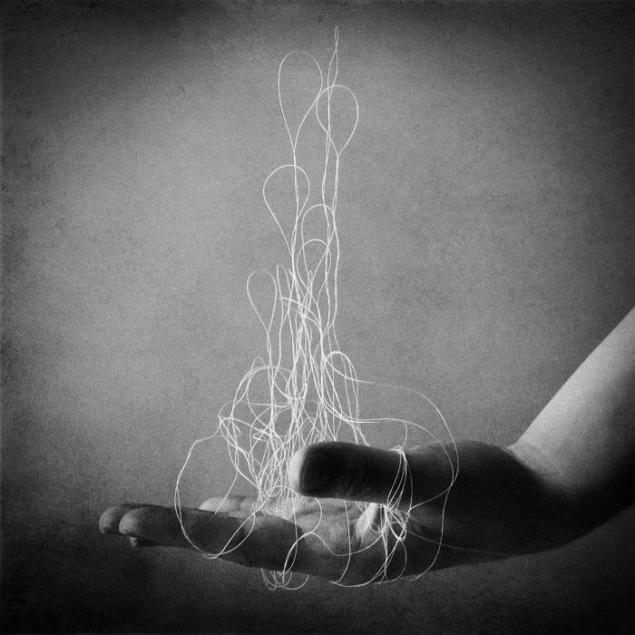510
To devalue to the level itself
What is horizontal and vertical communication and how is depreciation? This is specifically for readers says the psychologist-evolutionist Natalia Walicka.
Depreciation is a process in which two communicating people have different ideas about the roles in which they entered the fellowship. Hence there is ground conflict. If people do not agree — they communicate on equal terms, or positions in the hierarchy of dialogue, interaction, fun and good can not wait.
One can assume that what he brings to communication, can enhance, help and inspire the other, and his companion, however, feels wounded, amid erudite friend. The second, which did not order the view of "expert" will try to sneak up to the first level itself, to devalue the "broadcaster", relegating it to the level of their competence in the subject, claiming a crony of equality – "what you say".

The absence or presence of resonance in the dialogue, as well as the presence or absence of understanding is due to the fact that there are two positions in the geometry of communication, which is dialogue: vertical communication and horizontal communication. Well, at the beginning of the contact to determine what level you can speak, and most importantly – what role you are willing to accept.
What is a vertical relationship?
Vertical relations are relations that involve hierarchy. The presence of a hierarchy is obvious in the family, when there are parents and child. Parents – the upper figure, the child is the lower figure. Relationships "teacher – student" suggest a vertical hierarchy. Relations "boss – subordinate" implies the existence of a top authority, and who at the bottom receptive, listener, ready to open what will arise on top of the higher figures calling him respect and trust.
Even if you are a specialist in their field, but willing to learn and grow further, it is acceptable to be in a vertical relationship. The figure above you can easily be perceived as more competent. You will not be difficult to listen to it. The one who from above, if we accepts it as such to see, will always be the professionalism, vision, experience, ability to embrace large areas and the ability to understand what needs to happen for effect.
Vertical relationships imply that the lower figure is committed to achieve greater excellence, it is interested to vnemlet advice and it is useful, by choice, to listen to what offers, broadcasts the top figure.
But it will only work when your position is clearly higher. You presented as an expert and/or you have declared yourself as a professional, have proven their competence – in this case you will see the authority. The lower figure, they really are usually open and willing to collaborate, to evolve and learn.
There is a situation of depreciation and protest against the authoritarian position when the subordinate refuses to see in you authority, and prefers to communicate on an equal footing.
Yet the depreciation may take place when the child wants to get out of vertical relationship to the horizontal, to make a revolution, as in the case of teenagers, who, as a natural stage of growth, once there is a desire to go to the "independent sailing" and feel their own autonomy, ustremivshis from the vertical parent dominance.
For a small child in the family, parents are almost God — wizards who are sources of abundance and creature comforts they get food, heat, materialize things and healthy child interested in the fact that parents take care of him, he knows that adults have more knowledge about the world, and therefore it is useful to listen to them. Even if the child is naughty – he unconsciously checks the competence of parents to ensure their care and to feel their power.
Until a child grows to adult size, his rebellion is symbolic that checks the hierarchy in the family, character.
The teenager, being proportionate to an adult, is trying more to prove their right to equality, gently or harshly tends to lower the authority of parents to level the playing field to themselves – and eventually reach a horizontal relationship – become equal to them.
Horizontal relationship – how is it?
For example, if you are not presented as an expert in their field, and you met a man on equal terms — on a holiday, a family celebration, in a way, even if you see that can be useful to a person you just met, take the time to "clever", because you can be surprised that when you try to be helpful, you can try to "put in place", that is, to equate to their level unexpected way for you.
If the person is not ready to accept you as an authority, then, often, there is an attempt to devalue what you offer, or broadcast people, whom you know not at the vertical and horizontal positions.
During the journey, you — casual acquaintances, were fellow travelers on the plane, or somewhere else, in the space of public areas, then you are on equal footing, in this case, the people for equality are often not ready to accept the advice that they themselves asked.
They also can scare an open broadcast of the reality in which they were not. After all, Ego is designed so that where we were not, it seems to us that we should not be. So naturally, many people want to devalue the new, unfamiliar reality and to amuse his identity — "I'm not there, then there shouldn't be".
Take, for standing with you on the same horizontal, if it is not to you, the value of what he does not know is to recognize the fact that he still, to this day haven't been there in the resource territories where were you, and this is for many not just because of envy and arrogance intended to hide the envy.
Therefore, in horizontal communication, there is a risk that if they wish to be above the source (to create vertical growth to bring good and benefit to the world),it is roughly staschat to the bottom. Answering the questions that you asked – be prepared that you can reject and devalue, sneaking to a level where there is no request for expertise by the question.
Not always, but often, in a horizontal relationship can be rejected straight tips. Don't be surprised if you try to put on your level, making it a word, a gesture or facial expressions. So if you find yourself in this situation, be careful: you left out the fact that no additional reasons or some special rituals, where a third party will represent you as an expert, the other may not be ready to perceive you as an authority.
So, if you want to really benefit, then make sure that in this space came the words about your competence. It would be great if you do not do this, and you will present some third person, or yourself, from the very beginning will be able to show and to reveal their ecological competence, without hurting the dignity of the interlocutor, interest in his topic and prompt questions. This will create the conditions where your answers and advice will be fertile ground, you will be able to give a man what he will take with gratitude.

And, of course, something with which, perhaps, ought to start this topic: the depreciation of the partner, relatives and other close people.
The depreciation close — akin to jealousy on the contrary. That is: "You're so smart? Yes it is not necessary to start, and I'm afraid if it suddenly so really, you bitch about it, and I'm against this background, should (should) will recognize themselves on the sidelines, and will not have dominion over you. I don't like it, because it can cause you leave me. Therefore, it is beneficial for me not to recognize your purview, not to lose control of the relationship."
Here the depreciation triggered a fuse from too much living relationship, where dust fell stability can come novelty. Sudden innocence and erudition of the first can suddenly force the second, which like to change, but he's not ready, and therefore invalidates the first to have stabilized, "began to stall", and their relationship was back to normal and clear the second level.
Extending the validity of a revelation is the risk that, because of discovery, inspiration and insights, which was not expected, not asked, unable to brazenly break in and repackage roles and relationships between people. Fear of novelty makes people in personal relationships to devalue the opinion of another. The same fear to open up, fear of change, fear of change, fear of new territories. After all, any best is the enemy of the good.
Jewish proverb in defense of stability: "don't do me like better leave me as well." Your partner, mind may sincerely want help from you and be satisfied with how he fared. So before to gain the attention and support while expressing their opinions, well deep into itenough partner, you sure to receive new from you, not afraid of you with this new to lose; it is sufficient if the partner is NOT confident in its validity, that it is ready to improve on your advice?
Reassure a loved one, if possible, that your opinion is the information that exists in itself, and he was right not to agree with her. If your partner will NOT agree, it will not be a reason for you to cease to love him. If you manage to convey it to him, you will be able to grow indefinitely in a pair, curiously listening to each other's views, and to be free from the need of required to agree with a loved one.
Freedom from the need to evaluate, agree or refute the interlocutor is a sign of maturity and self-sufficiency of personality, this begins the true pleasure of communicating with people — a pleasure to observe them as a single phenomenon of nature.
Author: Natalia Walicka, especially for
P. S. And remember, just changing your mind — together we change the world! ©
Source: valitskaya.com/wp/
Depreciation is a process in which two communicating people have different ideas about the roles in which they entered the fellowship. Hence there is ground conflict. If people do not agree — they communicate on equal terms, or positions in the hierarchy of dialogue, interaction, fun and good can not wait.
One can assume that what he brings to communication, can enhance, help and inspire the other, and his companion, however, feels wounded, amid erudite friend. The second, which did not order the view of "expert" will try to sneak up to the first level itself, to devalue the "broadcaster", relegating it to the level of their competence in the subject, claiming a crony of equality – "what you say".

The absence or presence of resonance in the dialogue, as well as the presence or absence of understanding is due to the fact that there are two positions in the geometry of communication, which is dialogue: vertical communication and horizontal communication. Well, at the beginning of the contact to determine what level you can speak, and most importantly – what role you are willing to accept.
What is a vertical relationship?
Vertical relations are relations that involve hierarchy. The presence of a hierarchy is obvious in the family, when there are parents and child. Parents – the upper figure, the child is the lower figure. Relationships "teacher – student" suggest a vertical hierarchy. Relations "boss – subordinate" implies the existence of a top authority, and who at the bottom receptive, listener, ready to open what will arise on top of the higher figures calling him respect and trust.
Even if you are a specialist in their field, but willing to learn and grow further, it is acceptable to be in a vertical relationship. The figure above you can easily be perceived as more competent. You will not be difficult to listen to it. The one who from above, if we accepts it as such to see, will always be the professionalism, vision, experience, ability to embrace large areas and the ability to understand what needs to happen for effect.
Vertical relationships imply that the lower figure is committed to achieve greater excellence, it is interested to vnemlet advice and it is useful, by choice, to listen to what offers, broadcasts the top figure.
But it will only work when your position is clearly higher. You presented as an expert and/or you have declared yourself as a professional, have proven their competence – in this case you will see the authority. The lower figure, they really are usually open and willing to collaborate, to evolve and learn.
There is a situation of depreciation and protest against the authoritarian position when the subordinate refuses to see in you authority, and prefers to communicate on an equal footing.
Yet the depreciation may take place when the child wants to get out of vertical relationship to the horizontal, to make a revolution, as in the case of teenagers, who, as a natural stage of growth, once there is a desire to go to the "independent sailing" and feel their own autonomy, ustremivshis from the vertical parent dominance.
For a small child in the family, parents are almost God — wizards who are sources of abundance and creature comforts they get food, heat, materialize things and healthy child interested in the fact that parents take care of him, he knows that adults have more knowledge about the world, and therefore it is useful to listen to them. Even if the child is naughty – he unconsciously checks the competence of parents to ensure their care and to feel their power.
Until a child grows to adult size, his rebellion is symbolic that checks the hierarchy in the family, character.
The teenager, being proportionate to an adult, is trying more to prove their right to equality, gently or harshly tends to lower the authority of parents to level the playing field to themselves – and eventually reach a horizontal relationship – become equal to them.
Horizontal relationship – how is it?
For example, if you are not presented as an expert in their field, and you met a man on equal terms — on a holiday, a family celebration, in a way, even if you see that can be useful to a person you just met, take the time to "clever", because you can be surprised that when you try to be helpful, you can try to "put in place", that is, to equate to their level unexpected way for you.
If the person is not ready to accept you as an authority, then, often, there is an attempt to devalue what you offer, or broadcast people, whom you know not at the vertical and horizontal positions.
During the journey, you — casual acquaintances, were fellow travelers on the plane, or somewhere else, in the space of public areas, then you are on equal footing, in this case, the people for equality are often not ready to accept the advice that they themselves asked.
They also can scare an open broadcast of the reality in which they were not. After all, Ego is designed so that where we were not, it seems to us that we should not be. So naturally, many people want to devalue the new, unfamiliar reality and to amuse his identity — "I'm not there, then there shouldn't be".
Take, for standing with you on the same horizontal, if it is not to you, the value of what he does not know is to recognize the fact that he still, to this day haven't been there in the resource territories where were you, and this is for many not just because of envy and arrogance intended to hide the envy.
Therefore, in horizontal communication, there is a risk that if they wish to be above the source (to create vertical growth to bring good and benefit to the world),it is roughly staschat to the bottom. Answering the questions that you asked – be prepared that you can reject and devalue, sneaking to a level where there is no request for expertise by the question.
Not always, but often, in a horizontal relationship can be rejected straight tips. Don't be surprised if you try to put on your level, making it a word, a gesture or facial expressions. So if you find yourself in this situation, be careful: you left out the fact that no additional reasons or some special rituals, where a third party will represent you as an expert, the other may not be ready to perceive you as an authority.
So, if you want to really benefit, then make sure that in this space came the words about your competence. It would be great if you do not do this, and you will present some third person, or yourself, from the very beginning will be able to show and to reveal their ecological competence, without hurting the dignity of the interlocutor, interest in his topic and prompt questions. This will create the conditions where your answers and advice will be fertile ground, you will be able to give a man what he will take with gratitude.

And, of course, something with which, perhaps, ought to start this topic: the depreciation of the partner, relatives and other close people.
The depreciation close — akin to jealousy on the contrary. That is: "You're so smart? Yes it is not necessary to start, and I'm afraid if it suddenly so really, you bitch about it, and I'm against this background, should (should) will recognize themselves on the sidelines, and will not have dominion over you. I don't like it, because it can cause you leave me. Therefore, it is beneficial for me not to recognize your purview, not to lose control of the relationship."
Here the depreciation triggered a fuse from too much living relationship, where dust fell stability can come novelty. Sudden innocence and erudition of the first can suddenly force the second, which like to change, but he's not ready, and therefore invalidates the first to have stabilized, "began to stall", and their relationship was back to normal and clear the second level.
Extending the validity of a revelation is the risk that, because of discovery, inspiration and insights, which was not expected, not asked, unable to brazenly break in and repackage roles and relationships between people. Fear of novelty makes people in personal relationships to devalue the opinion of another. The same fear to open up, fear of change, fear of change, fear of new territories. After all, any best is the enemy of the good.
Jewish proverb in defense of stability: "don't do me like better leave me as well." Your partner, mind may sincerely want help from you and be satisfied with how he fared. So before to gain the attention and support while expressing their opinions, well deep into itenough partner, you sure to receive new from you, not afraid of you with this new to lose; it is sufficient if the partner is NOT confident in its validity, that it is ready to improve on your advice?
Reassure a loved one, if possible, that your opinion is the information that exists in itself, and he was right not to agree with her. If your partner will NOT agree, it will not be a reason for you to cease to love him. If you manage to convey it to him, you will be able to grow indefinitely in a pair, curiously listening to each other's views, and to be free from the need of required to agree with a loved one.
Freedom from the need to evaluate, agree or refute the interlocutor is a sign of maturity and self-sufficiency of personality, this begins the true pleasure of communicating with people — a pleasure to observe them as a single phenomenon of nature.
Author: Natalia Walicka, especially for
P. S. And remember, just changing your mind — together we change the world! ©
Source: valitskaya.com/wp/























